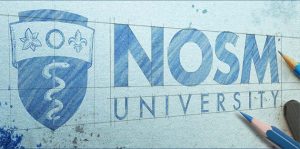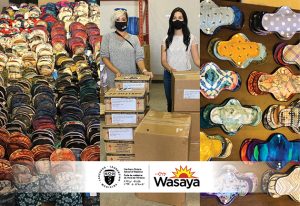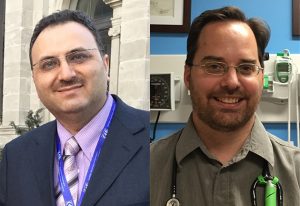Social media plays a major role in today’s world—instant communications, opportunities for engagement and the creation of networks of communities that one could never reach in conventional ways. I have made friends with people through common values and thoughts that were shared on Twitter and Instagram, yet I have never met some of them in person.
Being online 24/7 has its advantages, but for me, a judicious presence is important to my well-being. I have observed behaviours on social media that have been informative and poignant, but I have also seen racism, nastiness, and unfettered behaviours that worry me.
Over the past 18 months, social media has enabled us to keep in touch with one another throughout the lockdowns. The scientific community came together from around the globe to quickly translate knowledge to health-care providers and to develop vaccines in an unprecedented collaboration. Social media has, for many, become a lifeline to the world outside of their home or community, especially as people who are unable to travel freely look for ways to remain connected.
Health professionals are using social media tools in lots of innovative and creative ways—to build and improve social and professional networks, to share health-related information and to engage with the public and colleagues to influence health policies and priorities, like vaccination campaigns. Many NOSM stakeholders stay connected on Twitter and Instagram as well on LinkedIn. Facebook groups play an important role in creating communities of practice and networking.
The College of Physicians and Surgeons of Ontario recognises social media is a serious topic and is consulting widely. This is a proposed mandatory professional conduct policy with which all physicians will be required to comply. Expectations around professionalism, maintaining boundaries with patients, safeguarding confidentiality and showing respect for colleagues are the same when using social media as they would be in person.
I believe we have come to a turning point to be better, and do better, on social media. Earlier this year I called 2021 the year of social justice and climate change at NOSM. I encourage each of us to diversify our social media feeds. Having a diverse feed enables us to see differing perspectives, learn from others’ experiences, and learn more about climate change and social justice—themes that will remain relevant even after this year ends. Some examples of interesting people to follow are:
Autumn Peltier (@autumn.peltier) from Wiikwemkoong Unceded Territory, has become a global advocate for access to clean drinking water in Indigenous communities across Canada and uses her platform to speak on humanitarian causes. Candace Linklater (@relentless_indigenous_woman) is from Moose Cree First Nation and describes herself as pushing the envelope when discussing issues caused by colonization and racism and its impacts on Indigenous women, girls, and two-spirit and non-binary people. Desmond Cole (@DesmondCole), author of The Skin We’re In, sparks conversation and inspires activists after exposing racism after being stopped dozens of times under the controversial practice of carding.
Drs. Glaucomflecken (@DGlaucomflecken), Pimple Popper (@SandraLeeMD), and Jen Gunter (@DrJenGunter) are examples of medical leaders who have transformed the engagement of students and the public in discourse on evidence-based medicine and diagnosis. I also like to read what André Picard (@picardonhealth) thinks about health care and leaders in medical education (#MedEd) like Dr. Theresa Chan (@TChanMD) and Dr. Jason Frank (@drjfrank).
Interestingly, none of our main MedEd institutions (CFPC, RCPSC, MCC etc.) have a strong social media presence and I wonder if we don’t make an effort to keep up on these platforms, we may become more disconnected from society and our key constituents. Is it that the MedEd faculty age group is older and less technologically proficient? Do they use email more than Twitter, and PowerPoint rather than Tik Tok for teaching and connectivity? Are we using obsolete tools? Even this blog comes out on email. Is there a better way to communicate and connect across our vast pan-Northern campus?
Social media has transformed the world. Information and news can be spread within a blink of an eye. Used judiciously, it can be an effective teaching, sharing and word-spreading tool. Social media has evolved into a space where we can choose to engage in social justice issues. I would love to know who you follow on social media to learn from perspectives other than your own.
Did you know that some physicians are advocating for equitable access to quality health care in Northern Ontario?
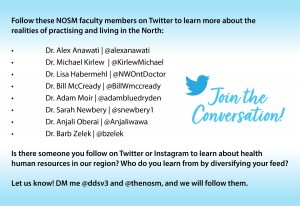
Miigwetch, thank you, marsi, merci,
Dr. Sarita Verma
Dean, President and CEO
Northern Ontario School of Medicine
If you have any feedback or comments, please reach out at dean@nosm.ca and follow me on twitter @ddsv3.
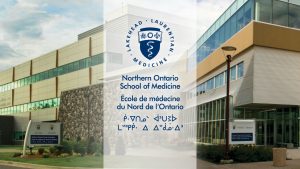
NOSM announces return to campus plan
Starting September 7, 2021, all on-campus activities for learners will resume at the medical school buildings in Thunder Bay and Sudbury. All learners, researchers, faculty, staff, and visitors who intend to access the medical school buildings in Sudbury and Thunder Bay are required to have received their full vaccination or the first vaccine dose by September 7, 2021 and must be fully vaccinated by no later than October 7, 2021. These requirements are aligned with the advice of public health authorities across Northern Ontario, government directives and are consistent with NOSM’s peer organizations. Learn more.

Join Dr. Verma and @OntariosDoctors for an OMA talk about
the impact of COVID-19 on Mental Health and Additions
Wednesday, August 25 at 6:30-8 p.m.
The pandemic has taken its toll on peoples’ mental health. As we look forward, it is imperative that we continue to focus on mental health. Join @OntariosDoctors for the next #OMATalks virtual event “COVID-19 Impact on Mental Health and Additions.” Register here.


